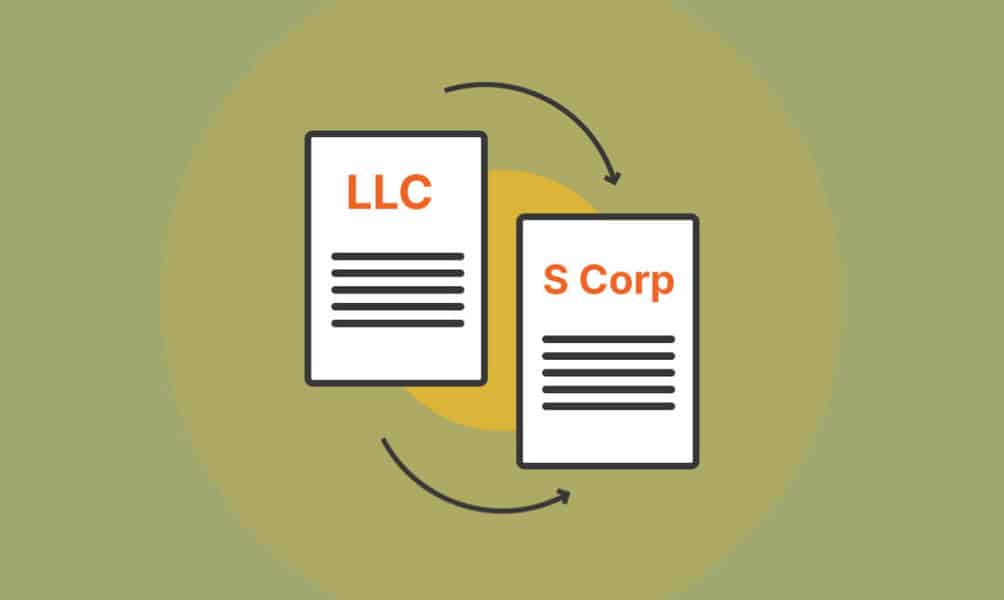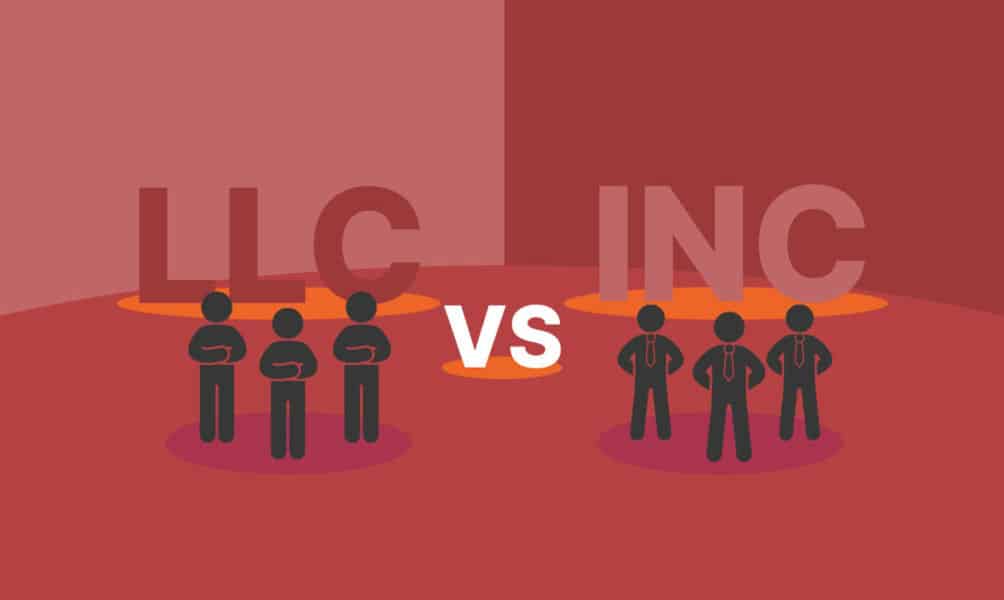If you’re starting an LLC, the business entity formation process is one of the first and most important hurdles. This step can be terribly complex ...
How to Convert from an LLC to an S Corp
Written by: Carolyn Young
Carolyn Young is a business writer who focuses on entrepreneurial concepts and the business formation. She has over 25 years of experience in business roles, and has authored several entrepreneurship textbooks.
Edited by: David Lepeska
David has been writing and learning about business, finance and globalization for a quarter-century, starting with a small New York consulting firm in the 1990s.
Published on December 7, 2021

At some point in your entrepreneurial journey, you may decide that having an S Corporation (S Corp) is more beneficial than a limited liability company (LLC). Companies sometimes make this shift when it makes financial sense due to the differences in taxation.
Before you convert, you should understand the differences between an LLC and an S Corp, and be sure about which is right for you.
What Is an LLC?
An LLC is an increasingly popular business structure for startups, offering liability protection for ownership and greater flexibility than a corporation, particularly in terms of taxes. The LLC itself does not pay taxes. As a “pass-through” entity, income passes through the business to the owner or owners, who report it on their personal tax returns. An LLC is created by filing paperwork with your state, and nominal fees are involved.
An LLC offers its owner or owners, who are called members, considerable flexibility in terms of management. You can choose your management and operational structure and decide how you want to be taxed. Your LLC can have a single member or multiple members, all of whom have personal liability protection, meaning your personal assets are not at risk if you cannot pay business debts or are involved in a lawsuit.
What Is an S Corp?
An S Corporation refers to the tax classification of the business. It is a company that, by meeting certain requirements, can be taxed as an S Corporation. An LLC can also choose to be taxed as an S Corp, but it remains an LLC. In an S Corporation, income is passed through directly to shareholders, without that income being taxed as corporate income, therefore the business is not responsible for corporate taxes. Instead, it is taxed as a partnership.
A corporation or LLC can be classified as an S Corp if it has 100 or less shareholders or members. Shareholders pay taxes on their pass-through income at their personal income tax rates. In contrast, in a corporation, income is “double taxed”, meaning the corporation pays taxes on the business income and shareholders pay taxes on dividends. S Corp shareholders can only be individuals, specific trusts and estates, or certain types of tax-exempt organizations.
LLC vs. S Corporation Comparison
Generally, S Corp tax status is beneficial if the company is profitable enough to pay the owners a salary and at least $10,000 in annual distributions so the owners can be taxed as employees and not pay self-employment tax.
It’s more expensive to run an S Corp than an LLC due to additional bookkeeping and payroll expenses. The tax benefits must be more than the additional costs for an S Corp status to make financial sense.
Other than that, an LLC and an S Corp are similar in terms of pass-through income taxation and personal liability protection.
However, if you plan to raise a significant amount of external investment and eventually go public, you should choose a corporation with S Corp status because an LLC cannot issue stock. Keep in mind that you will need to change to a C-Corp before going public.
If you are a small company with few members and desire more management flexibility, an LLC may be the best choice for you.
Taxation Comparison
An LLC with only one member is taxed as a sole proprietorship. The income of the business is passed through to the single member to be taxed at the member’s personal income tax rate. A multi-member LLC is taxed as a partnership. Each member’s share of the income is passed through to them to be taxed at their personal income tax rate.
LLC owners also may be eligible for the 20% pass-through deduction that was part of the Tax Cuts and Jobs Act, meaning that they can deduct up to 20% of the business income.
A multi-member LLC must also file form 1065 with the IRS, which is the U.S. Return of Partnership Income form. Attached to this will be K-1 forms for each member, highlighting their share of the business income.
Members are also responsible for paying self-employment taxes.
S Corps can choose to pass income through to their shareholders for federal tax purposes. Shareholders then report the flow-through of income on their personal tax returns and pay taxes at their personal tax rate, thus avoiding the double taxation of corporations.
S Corps use Form 1120S to file their taxes, which is used to report the income, losses, and dividends of S corporation shareholders. S Corp shareholders do not pay self-employment tax, which is one of the biggest benefits of S Corp status.
How to Change an LLC to an S-Corp
First, understand that you are not converting your LLC to an S Corp. S Corp simply refers to your tax status, so you are simply changing the tax status of your LLC. To choose S Corp tax status for your LLC, you simply need to file form 2553 with the IRS. First, make sure that your company is eligible for S Corp status. To be eligible you must meet the following requirements:
- The LLC has no more than 100 shareholders
- Shareholders are individuals, estates, or tax-exempt organizations as defined by IRS
- Shareholders are U.S. citizens or resident aliens
- The company has only one class of stock
- Each member consents to the S Corp election
Then you simply need to do the following:
- Check due dates for form 2553. It cannot be filed more than 2 months and 15 days after the beginning of the tax year in which you want the election to begin or anytime before the tax year that you want the election to begin.
- Complete the form and submit to the IRS.
In Closing
Making the conversion to an S Corp is simple, but you should first make sure it’s the right step for you. It has to make financial sense in terms of your company’s current position and within your long-term plan. Your best bet is to consult with your tax advisor who can analyze your situation and advise you on the pros and cons of converting. If it’s the right step for you, the process could hardly be more simple!
Subscribe to Our Newsletter
and gain insider access to cutting-edge business insights and trends.
Featured Resources

10 Best LLC Formation Services
Published on August 22, 2022
Read Now

LLC vs. Inc (Corporation): Key Differences
Published on January 12, 2022
When starting a company, deciding which business entity to form is a crucial consideration. Two of the most popular options are a limited liabilityc ...
Read Now

How to Transfer an LLC to Another State
Published on November 16, 2021
If you have a limited liability company (LLC), you might wish to transfer your LLC to a new statebecause: You’re moving and want to take your ...
Read Now
Comments